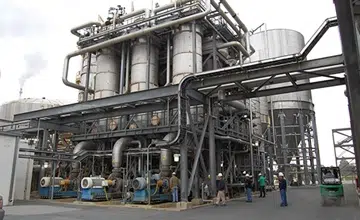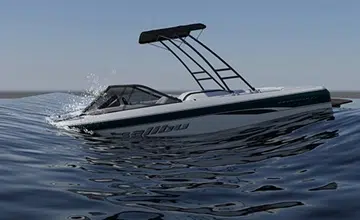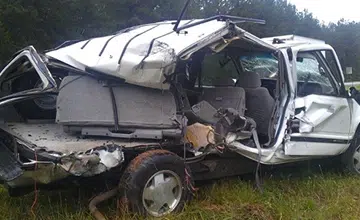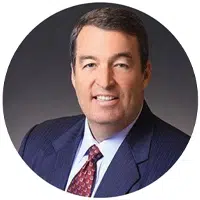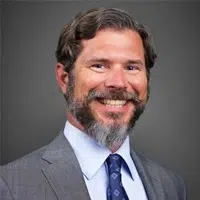Premises Liability Lawyer in Atlanta, GA
Any time you visit a grocery store, a bank, a friend’s apartment complex, or most commercial properties, the owners and managers of that property owe a duty to exercise reasonable care to keep their property safe for you.
Unfortunately, sometimes they do not. Whether it be tripping hazards, slippery substances, or more serious risks, like a known problem with violent crime, grave defects that lead to explosions and burns, or hazardous equipment, those companies can be held liable for their negligence.
Ashby Thelen Lowry has extensive experience litigating premises liability cases that involve brain injuries, burns, death, or serious orthopedic injuries that have (or will) require surgery.

Common Types of Premises Liability Hazards in Georgia
Property owners and managers have a legal responsibility to maintain reasonably safe environments. Visitors can suffer devastating injuries when they fail to identify, repair, or warn of hazards. Premises liability law covers a wide range of scenarios, many of which occur on properties where the danger could have—and should have—been prevented.
Some of the most common property-related dangers include:
- Wet or slippery floors without signage.
- Uneven pavement, loose tiles, or crumbling stairs.
- Exposed wiring or malfunctioning electrical systems.
- Broken elevators or escalators.
- Poor lighting in stairwells, parking garages, or corridors.
- Debris or clutter obstructing walking paths.
- Unsafe balconies, decks, or railings.
- Structural collapse due to poor maintenance or code violations.
These dangers can lead to catastrophic injuries, whether it’s in a retail store, apartment complex, warehouse, or public facility. Ashby Thelen Lowry investigates the history of property maintenance, prior complaints, and owner awareness to establish clear liability.
Serious Injuries That Result from Unsafe Premises in Georgia
Premises-related injuries are often more severe than people expect. A simple fall can result in more than a bruised hip—it can lead to brain trauma, permanent spinal damage, or even fatal outcomes.
Our firm has represented clients suffering from:
We work with medical experts and life care planners to understand the full extent of our clients’ injuries and how they will impact their ability to work, live independently, or care for their families.
How Negligent Security Leads to Preventable Harm
One often-overlooked area of premises liability is negligent security. In high-crime areas—or at properties with a history of violence—owners have a duty to implement reasonable safety measures. When they fail to do so, and someone is injured or killed in a criminal act on the premises, the property owner may be held partially responsible.
Examples of negligent security include:
- Lack of working security cameras or alarm systems.
- Poor lighting in parking lots or stairwells.
- Broken or unlocked gates, doors, or windows.
- No on-site security in high-risk areas or during high-traffic times.
- Failure to warn tenants or customers of recent criminal activity.
Ashby Thelen Lowry helps crime victims and their families hold negligent property owners accountable—not just for allowing danger to persist but also for failing to take basic steps to prevent foreseeable harm.
The Role of Visitor Status in Georgia Premises Liability Law
Georgia law categorizes visitors into invitees, licensees, and trespassers. Understanding how a person is classified is critical in determining what duty of care the property owner owed them.
- Invitees are individuals on the property for business purposes, such as shoppers, customers, or clients. Property owners owe invitees the highest duty of care, including routine inspections and repairs.
- Licensees are social guests or individuals with permission to enter the property, but not for business reasons. The owner must warn licensees of known hazards, but is not necessarily obligated to inspect for dangers.
- Trespassers are those on the property without permission. Owners owe them limited protection but may still be liable for willful or wanton conduct, or if the trespasser is a child harmed by an “attractive nuisance” (such as an unfenced pool).
Our firm works to clarify the victim’s legal status and the level of care required by the property owner. This legal distinction often determines whether a valid premises liability claim exists.
Proving Knowledge of the Hazard: Constructive vs. Actual Notice
To succeed in a premises liability claim, it must be shown that the property owner either knew about the dangerous condition (actual notice) or should have known about it through reasonable inspection (constructive notice).
We gather evidence such as:
- Surveillance footage.
- Maintenance logs and inspection reports.
- Prior incident or complaint history.
- Eyewitness testimony from employees or visitors.
- Expert assessments of how long the hazard existed.
By establishing that the danger was foreseeable—and preventable—we hold property owners to the standard of care required by Georgia law.
How Ashby Thelen Lowry Builds Strong Premises Liability Cases
Premises liability cases are fact-intensive and often aggressively defended by property owners and insurers. These entities may argue that the injured person was careless, the hazard was obvious, or that no prior issues had been reported.
We combat these tactics by:
- Conducting thorough investigations into the property’s condition.
- Hiring building inspectors, engineers, or safety experts to evaluate the site.
- Interviewing witnesses who can testify to the hazard’s existence or the property’s history of neglect.
- Working with medical professionals to clearly outline the scope of our clients’ injuries and ongoing needs.
Our attorneys approach every case with the detail and preparation required to withstand these defenses, whether in negotiation, mediation, or trial.
At Ashby Thelen Lowry, We Also Focus on The Following Services:
Schedule a Free Consultation with a Georgia Premises Liability Lawyer
If you were seriously injured on someone else’s property in Georgia, you may be entitled to financial recovery. Ashby Thelen Lowry represents clients who have been harmed due to unsafe environments, and we may be able to help you take the first step toward justice and accountability. Contact us today for a free consultation. We’re here to listen, investigate, and fight for your desired results.
If you or a loved one has suffered a serious injury on someone else’s property, contact our personal injury attorneys in Atlanta, GA, today at (404) 777-7771.
Frequently Asked Questions for Premises Liability
Premises liability refers to the legal responsibility of property owners or occupiers to maintain safe conditions on their premises. This includes ensuring that visitors are not exposed to unreasonable risks of harm due to hazards on the property.
We handle a wide range of premises liability cases, including slip and fall accidents, negligent security claims, dog bites, swimming pool accidents, and injuries caused by dangerous conditions on the property.
If you have been injured on someone else’s property due to unsafe conditions, you may have a premises liability claim. Factors such as the property owner’s negligence in maintaining safe conditions and your own actions at the time of the accident will determine the strength of your claim.
If you’re injured on someone else’s property, it’s important to seek medical attention immediately. Then, document the scene by taking photographs of the hazard and getting contact information from any witnesses. Finally, reach out to us as soon as possible to discuss your legal options.
In Georgia, you have two years from the date of the accident or injury to file a premises liability lawsuit. This is accurate as of September 2024. However, there are exceptions and nuances to this rule, so it’s crucial to consult with an attorney promptly to ensure your rights are protected. These exceptions tend to make the statute of limitations shorter than the two years, be sure to contact Atlanta premises liability attorney sooner than later to ensure the deadlines are met.
Not necessarily. While proving that the property owner knew about the hazard and failed to address it can strengthen your case, you may still have a viable claim if the property owner should have known about the hazard through reasonable inspection and maintenance procedures.
Compensation in premises liability cases may include medical expenses, lost wages, pain and suffering, and in some cases, punitive damages. The specific damages you can recover will depend on the circumstances of your case.
Georgia follows a modified comparative negligence rule, meaning you can still recover damages even if you were partially at fault for your injuries. However, your compensation may be reduced based on your percentage of fault. We can assess your case to determine how comparative negligence laws may apply.












